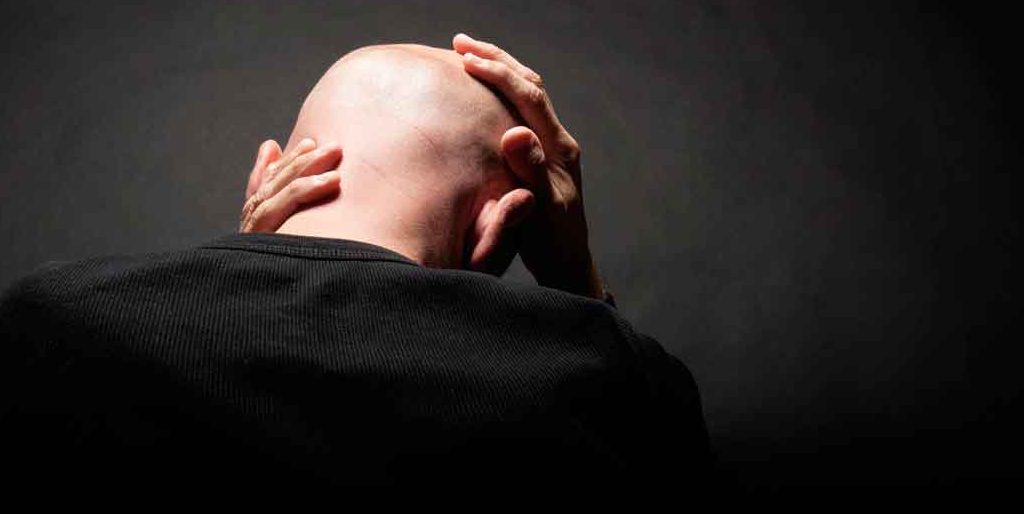Depression with Psychotic Features

Severe depression can include psychotic features, an umbrella term for hallucinations or delusions — any breaks with reality, often exaggerations of emotions.
Many people think psychosis only strikes people with schizophrenia. In fact, a severe depression can include psychotic features, an umbrella term for hallucinations or delusions — any breaks with reality. They are often an unreal exaggeration of the emotions linked to depression — sadness, shame, guilt, and worthlessness. You might hear a voice berating or taunting you or believe you committed a crime that never occurred.
YOU MIGHT ALSO LIKE: Nutrients Can Boost the Effectiveness of Antidepressants
To diagnose major depression, a psychiatrist looks for at least five symptoms over two weeks or more, including:
- Agitation
- Slow motor function
- Changes in appetite or weight
- Low mood
- Trouble concentrating
- Guilt
- Sleeping too little or too much
- Losing interest or pleasure in most activities
- Low energy
- Thoughts of death or suicide
If you also have delusions or hallucinations, you will be diagnosed as having depression with psychotic features.
Some depressed people experience hallucinations and delusions that seem random, not specifically about depressive emotions. Either way, many are ashamed of their symptoms, and hide them from doctors and family. That’s a big problem, since standard medication for depression with psychotic features includes an antipsychotic drug.
Let’s say you’re the only person who knows about your sister’s hallucinations, and you aren’t sure she’ll report them. The first step might be to ask her to give the psychiatrist permission to discuss her case with you. If she says no, you can still ask for an appointment or phone consultation. A psychiatrist can listen to what you have to say, without getting into a dialogue. Remember that the knowledge is highly likely to change the treatment.
Psychiatrists also need to hear about signs of manic periods, a swing to elation, agitation, or high activity. Psychotic depression can be an indication of bipolar disorder, with the mania sometimes coming later. People are more likely to have a psychotic feature in their depression if anyone in the family has bipolar disorder. Standard antidepressants can make bipolar disorder worse, so a psychiatrist will have to decide which approach to try first.
Depression with psychotic features sometimes shows up in postpartum depression — a horrific state that can lead a mother to kill her baby because of a delusion.
Most organizations recommend a combination of drugs for psychotic depression, such as a standard antidepressant like fluoxetine (Prozac) along with one of the antipsychotics:
- Olanzapine (Zyprexa)
- Quetiapine (Seroquel)
- Risperidone (Risperdal)
The medications can take weeks or months to bring real relief, and they sometimes fail, however.
Electroconvulsive therapy (ECT) is another option, which some experts argue should be considered first. In a hospital, you will receive an electric shock while under anesthesia. The shock creates a mild seizure that acts almost like a reboot of a computer.
Depression with psychosis is especially common in older people who live in institutions. Among the elderly, antidepressants alone, without antipsychotic drugs, may work better. Such patients do worse on tests of memory and thinking than depressed people without psychosis, and at older ages they may be diagnosed with dementia. Some doctors talk of “depressive pseudodementia,” cognitive impairment caused by depression that appears to be dementia.
ECT can reverse psychosis as well as depression and cognitive impairment. In one case, a 68-year-old woman with a history of suicide attempts came to an emergency room insisting that she couldn’t speak, move, swallow, or eat. She indicated that her “tongue and legs were gone,” and her husband reported that she was losing weight and he had to force-feed her. She was taking fluoxetine and an antipsychotic. She had tried a variety of drugs, but never ECT. Her new doctors decided to try ECT.
Before her first treatment, her scores on standard tests indicated that she had moderate-to-severe dementia. After two ECT sessions, her score improved. After two more, her thinking was close to normal. Her energy, appetite, and mood soared, and her delusions began to fade.
A word of warning. Psychosis makes a suicide attempt much more likely. One study found that nearly a third of serious suicide attempts include psychosis. Moreover, many people die of suicide immediately after they are released from the hospital.
To prevent an attempt, get advice on a specific plan to protect your loved one.
Updated:
January 16, 2024
Reviewed By:
Christopher Nystuen, MD, MBA